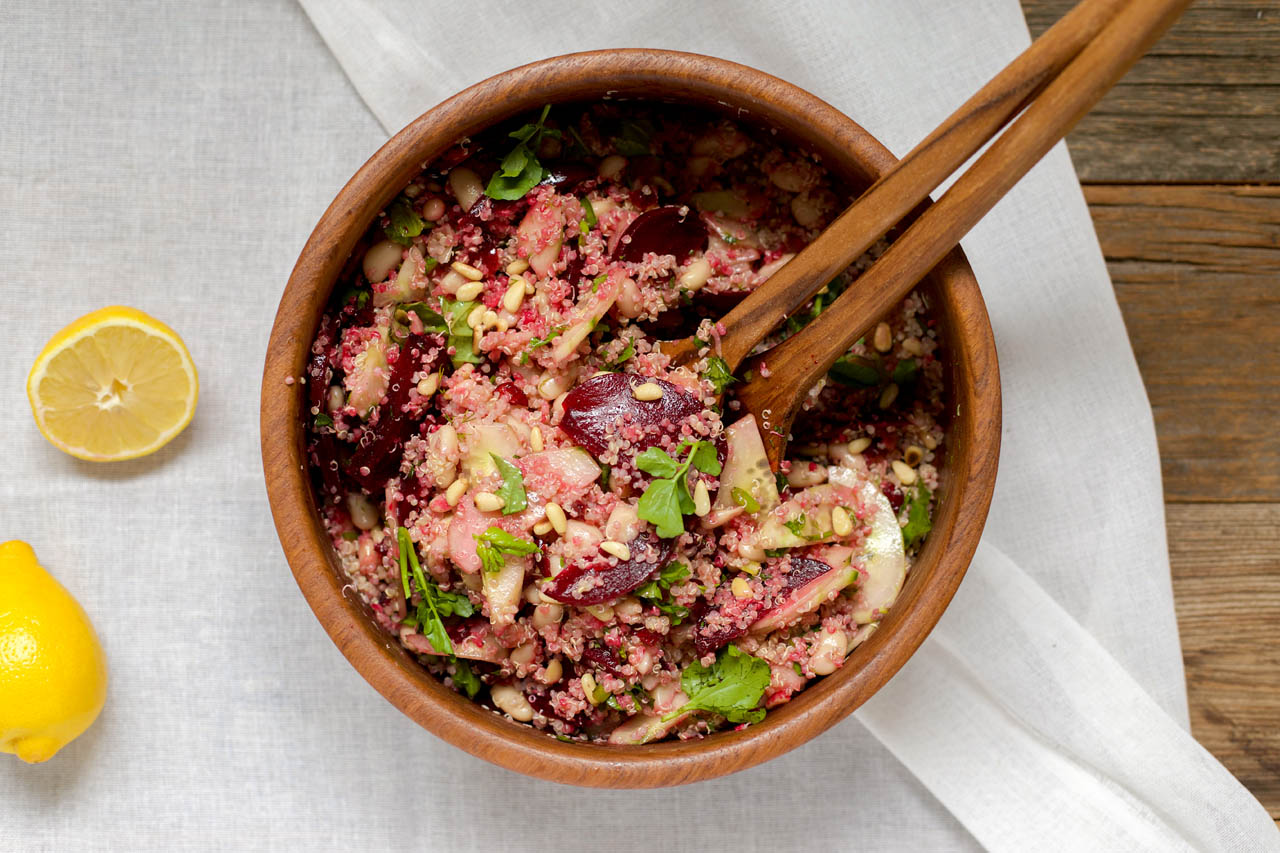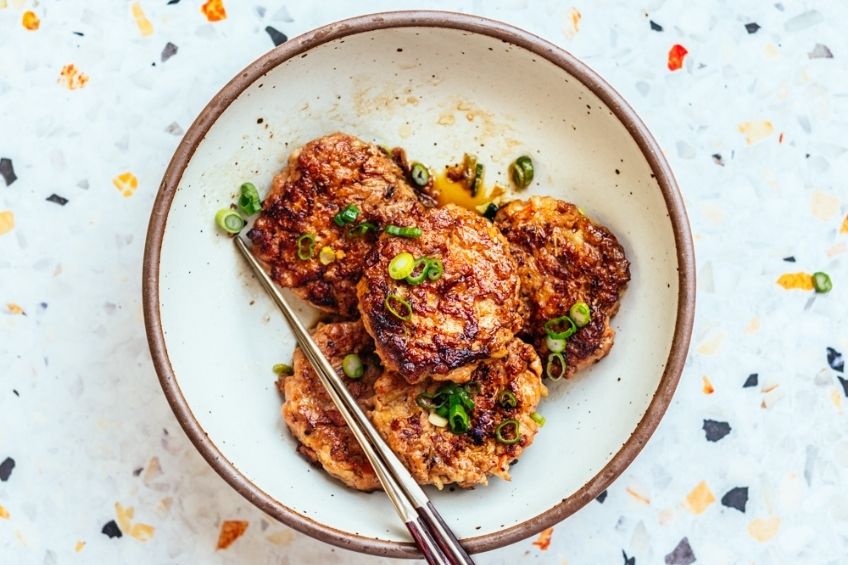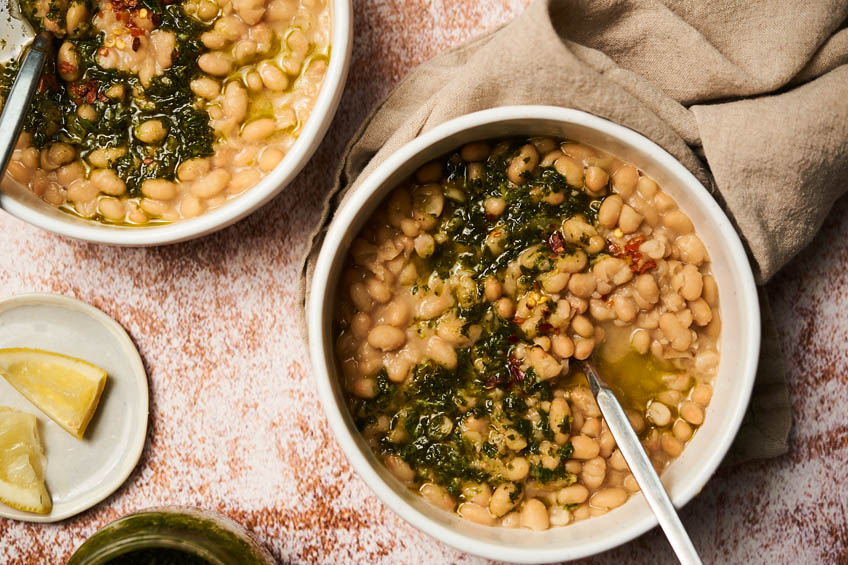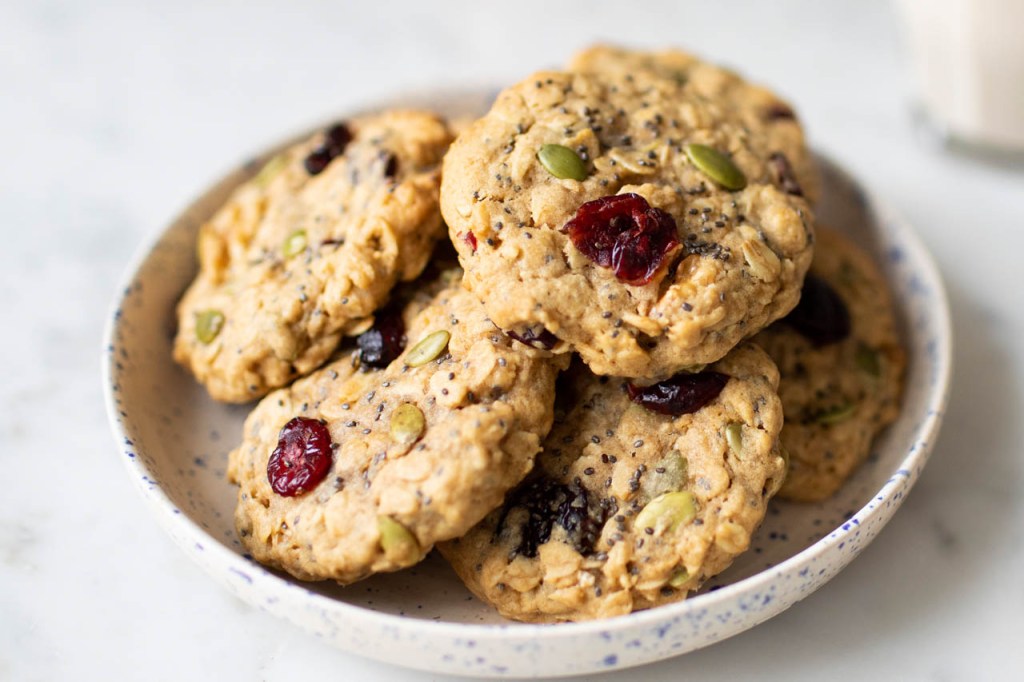
It’s happened to many of us: you pride yourself on eating healthy — you drink superfood smoothies, eat dark leafy greens or a hearty chickpea salad, and still, somehow, a swollen belly pops out, forcing you to unbutton your pants and sit in bloated discomfort. Bloating isn’t as surprising when you consume foods you know aren’t good for you, but it can be an incredibly frustrating feeling when you do your best to eat healthy.
The gut is made up of billions of microflora that maintain your health – they support the immune system, help with weight loss, prevent disease and uplift your mood. Bloating is usually associated with poor digestion, bad diet, and an overgrowth of unwanted bacteria in the gut, but sometimes even healthy eating habits can lead to that unwanted protruded belly. Here are the top seven healthy culprits triggering a bloated tummy.
1. Cruciferous Veggies
It’s common knowledge that cruciferous veggies, such as broccoli, kale, cabbage, Brussels sprouts and cauliflower, are some of the most nutritious and antioxidant-rich foods, but they also have a bad rap for inducing a bloated belly and embarrassing gas. These veggies contain raffinose, an indigestible carbohydrate that passes through the digestive system without being broken down. When it reaches the large intestine, bacteria feed on it, releasing gas and causing a bloated belly.
This isn’t a reason to remove these veggies from your diet. Sometimes lightly steaming or cooking these vegetables make them more digestible and easier to chew, so they can break down further. Populating the gut with good bacteria through fermented foods like kimchi, kefir or sauerkraut can also help.

Get the recipe: 3-Ingredient Kimchi Chicken Patties
2. Superfood Smoothies
Smoothies are an easy way to get powerhouse vitamins, minerals, protein, fat and fibre all in one quick drink — but, sometimes when all of these ingredients combine together, a distended belly is the result. For some, combining fruit and protein or fruit and fat is a digestive nightmare.
To make your smoothie more gut-friendly, try adding fermented protein, fermented greens powder, kefir, dairy-free coconut yogurt or digestive spices like ginger and turmeric.
3. Beans, Beans the Magical Fruit
Everyone knows this rhyme because beans, like chickpeas, kidney beans, lentils and soybeans, are notorious for causing bloating and gas. Many vegans and vegetarians subsist on beans as an essential plant-based protein source. They’re also packed with heart-healthy fibre, minerals and vitamins, making them an optimal choice for any healthy eater. But, like cruciferous veggies, beans also contain raffinose, an oligosaccharide that remains undigested until it reaches the colon, when gas-producing bacteria feed on it, and voila, the bloat and gas duo begin.
Luckily, soaking dried beans overnight helps to reduce the gassiness. Cook them with seaweeds like kelp or kombu to increase their digestibility further.

Get the recipe: Brothy, Herbaceous White Beans
4. Refreshing Watermelon
Watermelon may be a refreshing summertime fruit, but it’s also a bloating nightmare for some. You think you’re being healthy by skipping out on sugary dessert and opting for this juicy treat instead, but sadly, you may end up in a post-meal bloat-fest. Watermelon contains a variety of short-chain fermentable carbohydrates that are poorly absorbed by the gut and then fermented by bacteria, causing unwanted abdominal bloating.
Try fruits like pineapple or papaya instead, which contain natural enzymes that help with digestion.
5. Whole Healthy Grains
Whole grains like whole wheat, spelt, kamut, rye and barley can be found in salads, wraps, bread and pasta. These fibre-rich grains help eliminate waste and toxins from the body, but they also contain gluten and fermentable carbs like fructans. If there’s an underlying gluten sensitivity, which many people have, these gluten grains can cause mild to severe abdominal pain and bloating. The gas-producing bacteria in the colon will feast on the fructans, also leading to bloating and unwanted gas.
Switch to gluten-free recipes and grains like quinoa, rice or gluten-free oats as a healthy alternative that will beat the bloat. Or, try spelt, wheat or kamut in a sourdough or sprouted bread to increase the digestibility.

Get the recipe: Healthy Gluten-Free Oatmeal Breakfast Cookies
6. Onions and Garlic
Onions and garlic are the base ingredients of most dishes, adding flavour and also immune support, but, like other foods on this list, they contain fructans that poorly pass through the small intestine and are then fermented by gas-producing bacteria in the colon, leading to bloating and flatulence.
Switch to other alliums like chives, or the green tops of scallions and leeks that are easier to digest. Use different flavours to build your dish like ginger, cumin or turmeric.
7. Drinking Too Much Water During Meals
Most people are dehydrated and, in an effort to consume more water, drink lots of fluids during meals. Drinking while eating actually dilutes important digestive juices, so food doesn’t get digested properly, which leads to bloating. Slowly sipping small amounts of fluids during a meal, drinking before eating or at least 30-60 minutes after a meal will help prevent bloating.
Not everyone will experience bloating from these healthy foods, but if you feel the bloat coming on, it’s usually a sign your gut needs some love and support. Remember to eat fermented foods full of good bacteria (think kimchi, kefir and sauerkraut), try a probiotic soda or eat a low FODMAP diet that limits bloat and gas-producing foods, like the ones mentioned above.
Related: These Are the Best Low FODMAP Alternatives You Can Buy
